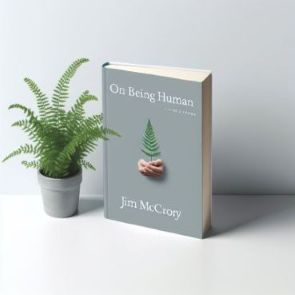“Every happy ending is a hint of home.”

Longing for the Ending We Were Made For
While searching for a film free of sex, violence, and the occult, we unexpectedly encountered something far rarer: goodness. The Indian film Bajrangi Bhaijaan offered not merely clean entertainment, but a deeply humane story—one that lingers long after the screen goes dark. It tells the story of Pawan, a simple, devout Indian man whose life is upended when he discovers Shahida, a mute Pakistani child, lost and separated from her family. What follows is not a tale of ideology or nationalism, but of costly compassion. Pawan’s journey to reunite Shahida with her parents is perilous, humiliating, and socially dangerous, yet he presses on, guided by conscience rather than fear.
The film’s emotional power culminates in a moment that feels almost sacramental. As Shahida crosses the border and realizes she may never see Pawan again, the impossible happens: she finds her voice. Her cry—his name—breaks through barbed wire, politics, and silence itself. It is a moment of pure joy, a vindication of love, and a reminder that some endings feel “right” in a way that transcends plot. We leave the film satisfied, even grateful. And then the question quietly arrives: why?
Why do such happy endings move us so deeply? Why do we crave them—not only in films like Bajrangi Bhaijaan, but in novels, myths, fairy tales, and the stories we tell our children? Are these endings merely sentimental escapes from a harsh world, or do they reveal something essential about us?
From the very beginning of life, human beings reach for joy. An infant cries until it is held, fed, and comforted. That instinct never disappears; it matures. As adults, we pursue happiness through love, work, creativity, justice, beauty, and faith. Even our appetite for stories reflects this longing. We identify with characters who endure suffering and yearn for resolution because we recognize ourselves in them. Their joy reassures us that happiness—somewhere, somehow—is possible.
Yet lived experience rarely mirrors the structure of a satisfying story. Life often resists resolution. Loss remains unresolved. Justice goes unmet. Illness, betrayal, and grief arrive without warning. If happiness is so fragile and fleeting, why does our longing for it remain so stubbornly persistent?
This tension lies at the heart of the human condition. We are creatures who ache for permanence in a world defined by decay. We desire fulfilment, yet everything we grasp slips through our fingers. C.S. Lewis observed that this mismatch is not accidental. He argued that when we find within ourselves desires that no earthly experience can satisfy, the most reasonable explanation is not that those desires are illusions, but that they were never meant to be fulfilled here. We were made, he suggested, for another world.
This insight resonates deeply across religious traditions, particularly within Christianity. Scripture speaks of a future in which tears are wiped away, death is defeated, and sorrow is no more. In this vision, our longing for happiness is not a weakness or a naïve denial of suffering. It is evidence—a clue embedded in the soul—that we are oriented toward eternity. We want joy because we were designed for it.
Stories like Bajrangi Bhaijaan echo this deeper truth. They remind us, however briefly, of a moral shape to the universe—a sense that love should triumph over hatred, that sacrifice should be rewarded, that brokenness is not the final word. Such stories awaken what Lewis called the longing for the “far-off country,” a place where goodness is not fragile and joy cannot be taken away.
Even stories that end in tragedy participate in this longing. When injustice remains unresolved or suffering goes unanswered, we feel not indifference but protest. We want wrongs to be made right. That dissatisfaction itself points beyond the world as it is toward a world as it ought to be.
Many explanations have been offered for our relentless pursuit of happiness. Evolutionary psychology suggests it aids survival. Classical philosophy elevates happiness as the highest human good. These accounts explain part of the story, but not its depth. They cannot fully account for the aching, almost homesick quality of human longing—the sense that joy is not merely pleasurable, but proper, as though it belongs to us by design.
That longing appears spiritual at its core. It is bound up with love, beauty, creativity, and transcendence—with the sense that we are meant for more than endurance. As Augustine famously wrote, our hearts remain restless until they rest in God. The restlessness itself is revelatory.
Real life seldom offers the tidy resolutions we encounter in films. Yet this does not render our longing foolish. On the contrary, it invites us to view life as a story still unfolding. Just as the darkest chapter in a novel often precedes its resolution, our present suffering may not be meaningless. It may be preparatory.
Whether one accepts the promise of eternity or not, the human hunger for happiness remains undeniable. It shapes our stories, animates our choices, and gives direction to our hope. If Lewis was right, then every truly happy ending is a signpost—pointing beyond itself toward a joy that is not imagined, but promised.
And so we keep searching for happiness; not because we are blind to suffering, but because joy is written into the fabric of our being. Perhaps what we are really seeking is not happiness itself, but its source. For every story, in the end, gestures toward a greater one: a journey from longing to fulfilment, from brokenness to redemption, and from time into eternity.
As Jesus said to the dying thief, “Truly I tell you, today you will be with Me in Paradise.” That promise—quiet, undeserved, and final—may be the truest happy ending of all.
